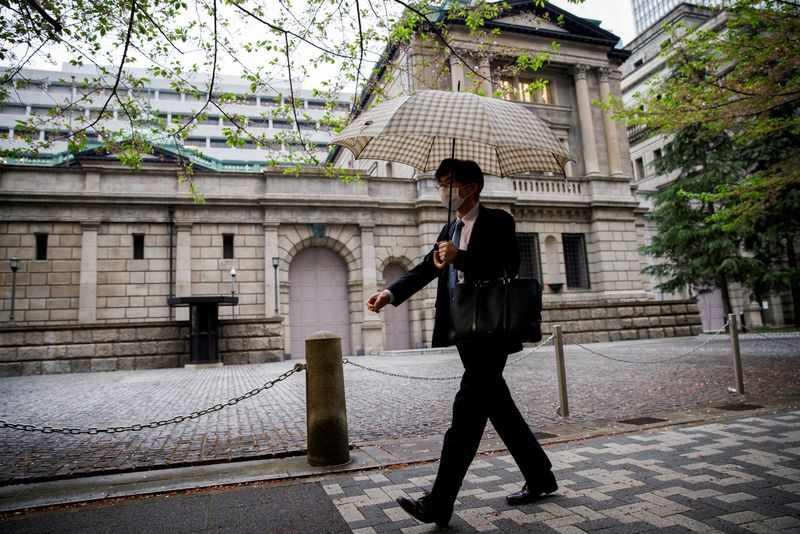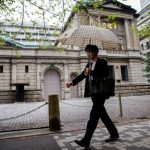HAKODATE, Japan (Reuters) -The Bank of Japan’s influential deputy governor said on Wednesday the central bank will not hike interest rates when markets are unstable, playing down the chance of a near-term hike in borrowing costs.
The remarks by Shinichi Uchida, which contrasted with Governor Kazuo Ueda’s hawkish comments made last week when the BOJ unexpectedly raised interest rates, boosted Japan’s Nikkei share average and sent the yen sharply lower.
Uchida said the intense market volatility in the past week could “obviously” change the BOJ’s rate hike path if it affects the central bank’s economic and price projections and the likelihood of Japan durably achieving its 2% inflation target.
“As we’re seeing sharp volatility in domestic and overseas financial markets, it’s necessary to maintain current levels of monetary easing for the time being,” Uchida said in a speech to business leaders in the northern Japanese city of Hakodate.
“Personally, I see more factors popping up that require us being cautious about raising interest rates,” Uchida, a career central banker seen as a mastermind of the BOJ’s policy making, told a news conference after the speech.
The remarks came in the wake of signals from Governor Ueda last week that more rate hikes will be forthcoming, which some traders blamed for causing a huge unwinding of yen carry trades.
“Uchida’s dovish comments balanced out the governor’s hawkish tone last week,” said Hiroshi Kawata, senior economist at Mizuho Research & Technologies.
“Market volatility is so high now that it won’t subside soon, which means the hurdle for an October rate hike is now quite high,” he said.
Uchida said the recent strengthening of the yen would affect the BOJ’s policy decision-making because it reduces upward pressure on import prices, and therefore overall inflation.
Stock market volatility would also influence its decisions by affecting corporate activity and consumption, he added.
“Unlike U.S. and European central banks, we’re not in a situation where we would end up being behind the curve unless we hike interest rates at a set pace,” Uchida said.
“We won’t raise interest rates when financial markets are unstable,” he said in the speech.
The dollar surged to a session high of 147.50 yen and was last up 1.8% at 146.84 on Uchida’s remarks, while the 10-year Japanese government bond (JGB) yield fell 1 basis point to 0.875%.
The Nikkei average rose 1.2% following Tuesday’s 10% rally, suggesting investors were finding their footing after the recent market rout that saw the index plunge 13% on Monday.
U.S. OUTLOOK KEY
Last week, the BOJ raised interest rates to levels unseen in 15 years and unveiled a detailed plan to slow its massive bond buying, taking another step towards phasing out a decade of huge stimulus.
Governor Ueda said the BOJ will keep raising rates if the economy and prices move in line with its projection, signalling the chance of steady hikes in coming years.
The hawkish remarks, as well as weak U.S. labour data that stoked fears of recession in the world’s largest economy, helped contribute to a global market rout that sent the yen soaring and Japan’s Nikkei average plunging on Monday.
Markets have whipsawed since then, partly as traders reassessed the timing and pace of future BOJ rate hikes.
While stressing the need to keep monetary policy loose for the time being, Uchida said Japan’s economy was likely to keep recovering with the United States seen achieving a soft landing.
He also said he had no set level in mind on how far the BOJ could eventually raise interest rates.

“Uchida’s comments are clearly dovish. Unless market sentiment recovers rapidly, the chance of the BOJ hiking rates either in September or October is low,” said Toru Suehiro, an economist at Daiwa Securities.
“But if U.S. recession fears subside around year-end, the BOJ will likely raise rates in December,” he said.
To read the full article, Click Here

